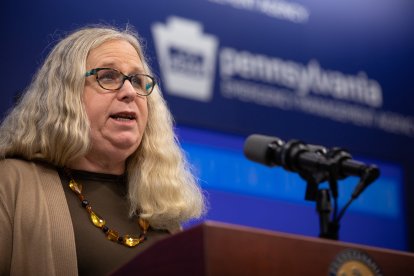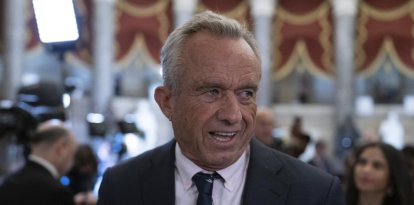Trans Madness
Biden administration pushed to remove age limits on trans surgeries for minors
Assistant Secretary Rachel Levine's team repeatedly communicated with the World Professional Association for Transgender Health, asserting that such limits favored conservative policies.

Rachel Levine, assistant secretary of health.
Declassified court documents prove that the Biden administration pressured the World Professional Association for Transgender Health (WPATH) to eliminate age minimums for medical treatment and sex change surgeries. This pressure was politically motivated, as the Biden administration believed that the association's recommendations and guidelines furthered Republican policies against operations on children.
Among the documents released to the press are several emails between members of the Biden administration, specifically from the Department of Health and Human Resources, and the leadership of the World Professional Association for Transgender Health. The government workers who carried out the communications with the organization belong to the team of Rachel Levine, assistant secretary of health in that department.
The documents disclosed are legal filings filed in a federal lawsuit against Alabama legislation that outlaws gender reassignment treatments for minors.
Pressure from Rachel Levine's team
Thanks to this pressure, the Biden administration achieved its goals and WPATH drastically relaxed its recommendations for gender reassignment protocols for minors. After the Biden administration's lobbying campaign, the international organization stopped banning puberty blockers.
Previously, the professional organization recommended minimum ages of 14 for hormone treatments; 15 for mastectomies; 16 for breast augmentations or facial surgeries; and 17 for amputations and genital surgeries or hysterectomies. All of these recommendations disappeared after insistent communications from Rachel Levine's team. The removal of the age restrictions suddenly raised concern within the international group itself and among outside experts, according to The New York Times.
According to the unsealed documents, an anonymous member of WPATH's leadership mentioned a conversation with Sarah Boateng, then Rachel Levine's chief of staff: "She is confident, based on the rhetoric she's hearing in Washington, D.C., and what we've already seen, that these age-specific, sub-18 lists will result in devastating legislation for trans care. She wonders if the specific ages can be eliminated."
These excerpts would prove the Biden administration's intent to avoid conservative legislation banning transgender treatment for minors. In the eyes of Levine's team, the WPATH recommendations amounted to an argument in support of Republicans and critics of child sex change operations.
Another email stated that Rachel Levine "is very concerned that age inclusivity (especially for surgery) would affect access to (trans medical) care for trans youth and perhaps adults as well." The same email contends that "the situation in the U.S. is terrible and she (Levine) and the Biden Administration were concerned that the inclusion of ages in the document would make things worse. She asked us to remove them."
The U.S. remains divided on a state-by-state basis when it comes to transgender treatment for minors. The country is a step behind many others in the Western world, especially Europe, which legislated against treatment for minors. Some countries such as Sweden, Finland and the United Kingdom decided to suspend access to these operations for minors after their scientific institutions presented studies with negative conclusions for children.
Twenty-four states in the country have laws prohibiting trans treatments on minors. Added to them is Arizona, which only prohibits surgical operations. Of these states, Idaho, North Dakota, Oklahoma, Alabama, Florida and South Carolina also make it a crime to perform transgender treatment.
Not all states have legislation in place. In many of them, lower courts have put the brakes on the law following lawsuits by lobby groups and associations in defense of transgender treatment.
In contrast to the 24 states that have banned the treatments, 16 others, plus the District of Columbia, have shielded access to transgender treatment for minors with special legislation.
RECOMMENDATION





















